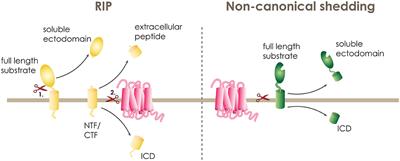MINI REVIEW
Published on 28 Jan 2021
Shedding of Klotho: Functional Implications in Chronic Kidney Disease and Associated Vascular Disease

doi 10.3389/fcvm.2020.617842
- 7,119 views
- 34 citations
11k
Total downloads
39k
Total views and downloads
You will be redirected to our submission process.
MINI REVIEW
Published on 28 Jan 2021

REVIEW
Published on 20 Jan 2021

REVIEW
Published on 08 Jan 2021

REVIEW
Published on 16 Dec 2020

REVIEW
Published on 14 Dec 2020

ORIGINAL RESEARCH
Published on 01 Dec 2020

MINI REVIEW
Published on 24 Nov 2020

